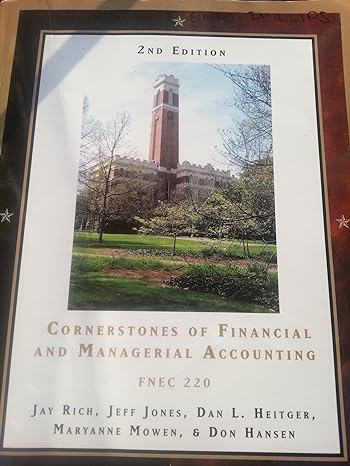Question
Company executives face a dilemma. They seek new capital to fund expansion initiatives. Common shares are expected to continue to rise sharply in market price,
Company executives face a dilemma. They seek new capital to fund expansion initiatives. Common shares are expected to continue to rise sharply in market price, but this would not be the time to issue new stock. Yet interest rates are also high relative to historical interest rates, and the Company currently holds a lowly B bond rating. A debt issue would be quite costly.
Would it be feasible to issue either
- Bonds with warrants, or
- Convertible bonds ?
Address the following:
Consider this alternative:
What if convertible bonds are issued? Suppose a 20 year 8.5% annual coupon, callable bond is issued for the face value of $1000 whereas a straight debt issue would require a 10% coupon. The convertible bonds would be call protected for 5 years, the call price would be $1100, and the company would probably call the bonds as soon as possible after the conversion value exceeds $1200. Note though the call would be on an issue date anniversary. The current stock price is $20, the last dividend was $1 and the dividend is expected to grow at a constant 8% rate. Each convertible bond would convert into 40 common shares at the owners option.
- What conversion price is built into this bond?
- What is the convertibles straight debt value? What is the implied value of the convertibility feature?
- What is the bonds expected conversion value at year 0, and at year 10?
- What is the expected cost of capital for the convertible to this company? Is this cost consistent with the riskiness of the issue?
Step by Step Solution
There are 3 Steps involved in it
Step: 1

Get Instant Access to Expert-Tailored Solutions
See step-by-step solutions with expert insights and AI powered tools for academic success
Step: 2

Step: 3

Ace Your Homework with AI
Get the answers you need in no time with our AI-driven, step-by-step assistance
Get Started


